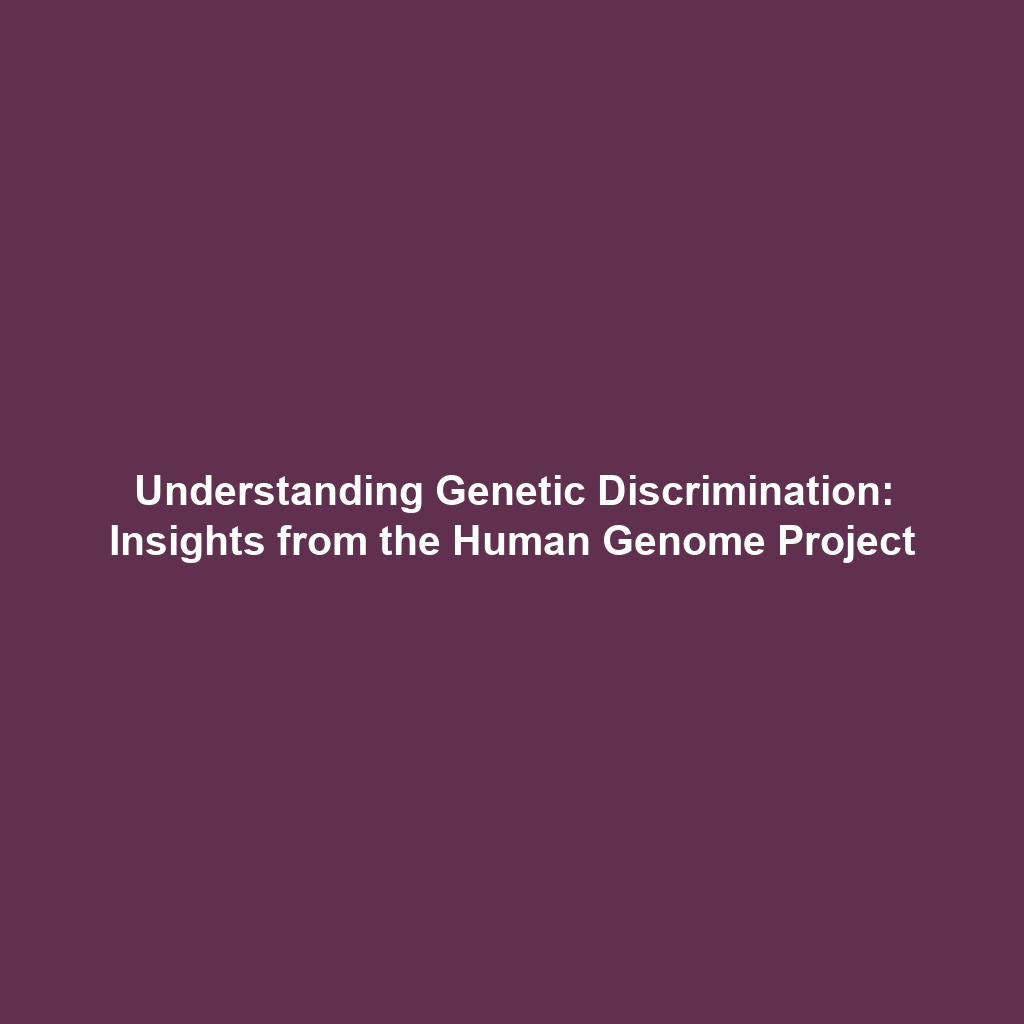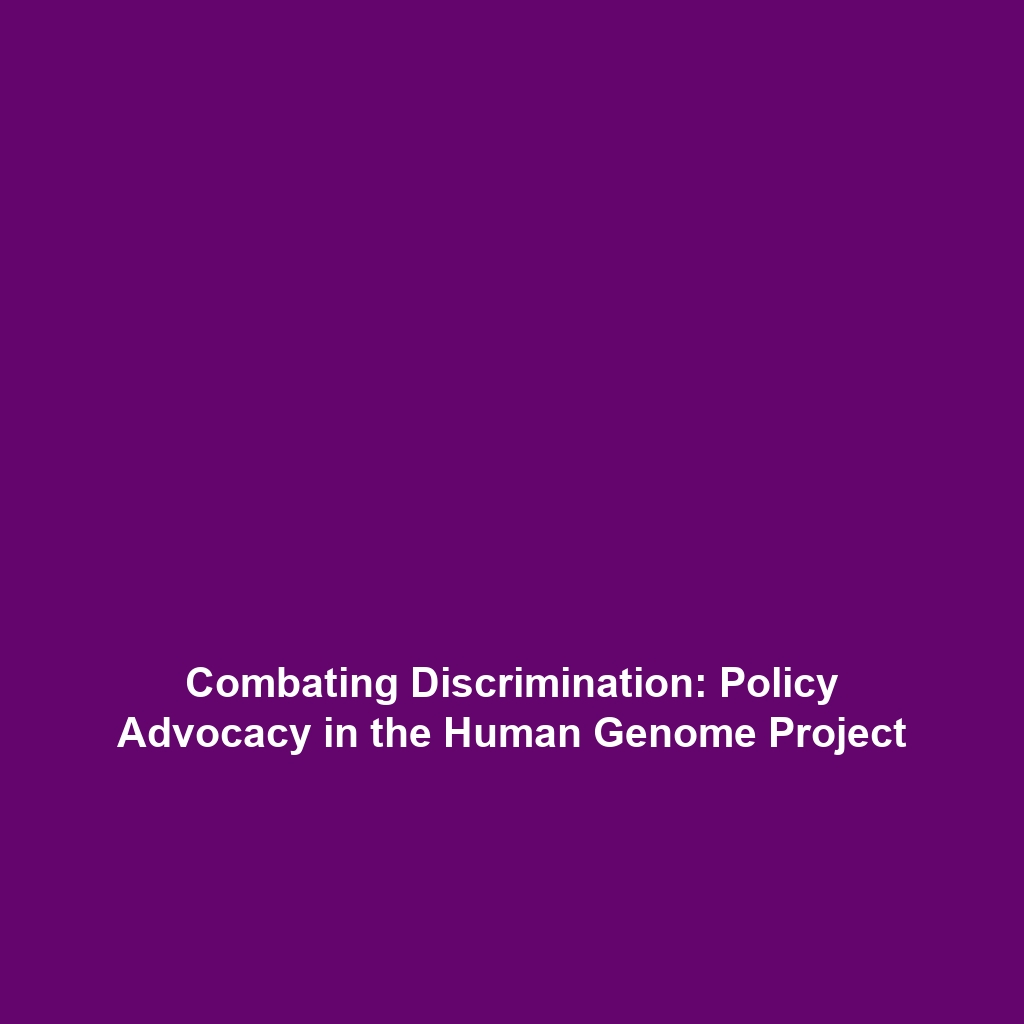Genetic Discrimination: Implications and Applications within the Human Genome Project
Introduction
Genetic discrimination refers to the unfair treatment of individuals based on their genetic information. With the advancements brought about by the Human Genome Project (HGP), understanding genetic predispositions has become more accessible. However, this accessibility raises significant ethical concerns, particularly regarding privacy and discrimination. As we delve deeper into the human genome, it becomes increasingly critical to examine the implications of genetic discrimination on society, healthcare, and legal frameworks. This article discusses key concepts, applications, and challenges surrounding genetic discrimination, emphasizing its importance in the realm of the Human Genome Project.
Key Concepts
Understanding Genetic Discrimination
Genetic discrimination involves the use of genetic information by employers, insurers, and other entities to make decisions that adversely affect individuals. The major concepts surrounding this issue include:
- Genetic Privacy: The right of individuals to keep their genetic information confidential.
- Genetic Testing: Procedures used to analyze DNA for specific genetic traits or predispositions.
- Legal Protections: Laws designed to prevent discrimination based on genetic information, such as the Genetic Information Nondiscrimination Act (GINA) in the United States.
Understanding these principles is crucial to addressing the challenges posed by genetic discrimination, particularly in light of the advancements made through the Human Genome Project.
Applications and Real-World Uses
The implications of genetic discrimination extend into various sectors, especially healthcare and employment. Key applications include:
- Healthcare Decisions: Genetic information allows for personalized medical treatment plans, but can lead to discrimination in insurance coverage.
- Employment Practices: Employers may use genetic information to assess potential health risks of employees, impacting hiring practices.
- Research and Development: The HGP has propelled genetic research forward, but ethical concerns about data usage remain prevalent.
Understanding how genetic discrimination is used in conjunction with the Human Genome Project is essential for developing ethical research and healthcare policies.
Current Challenges
The study and application of genetic discrimination face several challenges, including:
- Regulatory Gaps: Inconsistent laws globally regarding genetic data protection.
- Public Awareness: Lack of understanding among the public about genetic information and its implications.
- Data Security: Risks associated with unauthorized access to personal genetic data.
Addressing these challenges is necessary to ensure ethical practices in genetics and to foster trust in the advancements brought by the Human Genome Project.
Future Research and Innovations
Ongoing research is focused on overcoming the limitations of current practices in genetic discrimination. Potential future innovations include:
- Enhanced Legal Frameworks: Development of stronger legal protections against genetic discrimination.
- Next-Gen Sequencing Technologies: Innovations that enhance the accuracy and accessibility of genetic testing.
- Public Engagement Initiatives: Programs designed to educate the public about genetics and encourage informed consent.
These advancements will play a crucial role in shaping the future landscape of genetics within the context of the Human Genome Project.
Conclusion
Genetic discrimination represents a significant ethical concern in the advancement of genetics, particularly as facilitated by the Human Genome Project. It is imperative that we develop comprehensive frameworks to safeguard individuals’ rights while promoting responsible research. For more insights into the implications of genetic advancements, explore our related articles on Genetic Testing and Ethical Issues in Genetics.

